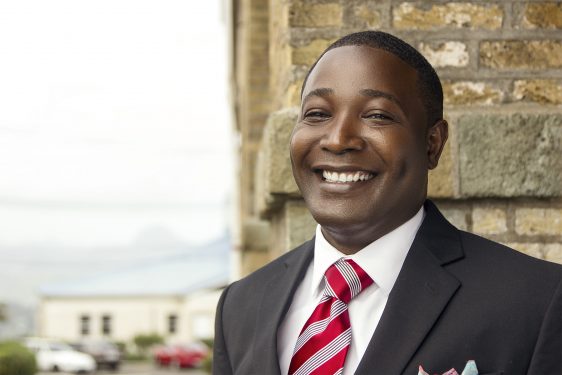Phyllis Northway Faculty Fellow and Assistant Professor
School of Human Ecology l Department of Human Development and Family Studies
Hometown: Dennery, Saint Lucia
Alvin Thomas is the Phyllis Northway Faculty Fellow and Assistant Professor of Human Development and Family Studies in the School of Human Ecology at the University of Wisconsin, Madison. Dr. Thomas’ is a clinical psychologist whose work exists at the intersection of positive child and youth development and father involvement. A member of the National Academies of Sciences, Engineering and Medicine’s child well-being forum, his research is focused on Black children, Black fathers, and their families and communities, addressing three issues through an ecological lens (a) Youth violence, (b) fatherhood and parenting, and (c) race and discrimination. Dr. Thomas is the 2021 Louise Kidder Early Career award recipient from the Society for the Psychological Study of Social Issues, 2022 Early Career award recipient from the Federation of Associations in Behavioral & Brain Sciences; and the 2022 Outstanding Alumni for the Max Planx Life Course program. Dr. Thomas is the creator and host of the multi-award-winning “The Black Fatherhood Podcast with Dr. Alvin Thomas” now The Black Fathers’ Pulse; and The Fatherhood Depot Blog, to explore issues concerning the representation of, and challenges faced by, Black fathers while he educates, validates, and elevates Black fathers.
Talks:
Building Youth Efficacy: Mitigating Risks to Positive Youth Development
The challenges to positive youth development, especially for ethnically/racially marginalized youth are many. This presentation examines some of these challenges, but also specific findings on how negative trajectory can be interrupted and the role of key agents in this important work.
Fathering: Challenges, benefits, barriers.
More men today are actively involved in the lives of their children than they would report was the case for their own fathers, however, our social fabric is still slow in its full integration of fathers. Our organizations are challenged in their appreciation of the role of fathers, and even in the family, fathers face significant barriers. What are some of the father related, organization orientation, and relational factors that could enhance the contribution of fathers beyond child support?
